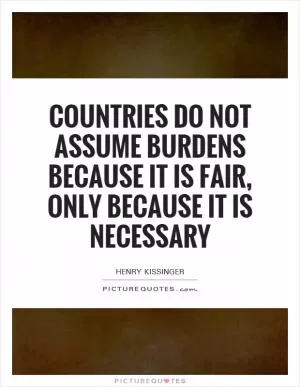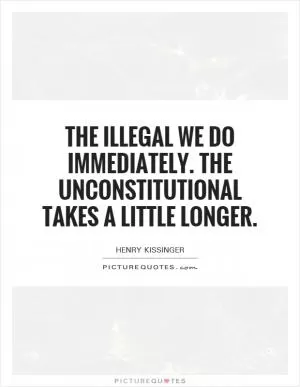We are all the President's men

We are all the President's men
"We are all the President's men" is a phrase that has been used to describe the close-knit group of advisors and confidants that surround a sitting President. In the case of Henry Kissinger, this phrase takes on a particularly significant meaning. Kissinger served as the National Security Advisor and later as the Secretary of State under Presidents Richard Nixon and Gerald Ford, making him one of the most influential and powerful figures in American foreign policy during the 1970s.As a key member of the President's inner circle, Kissinger played a central role in shaping and implementing U.S. foreign policy during a tumultuous period in American history. He was instrumental in negotiating the end of the Vietnam War, opening up diplomatic relations with China, and brokering peace agreements in the Middle East. Kissinger's realpolitik approach to foreign policy, which prioritized national interests over moral considerations, was controversial but undeniably effective in achieving America's strategic goals.
Kissinger's close relationship with President Nixon was both a source of strength and a source of controversy. As one of the President's most trusted advisors, Kissinger had unparalleled access to the levers of power and was able to shape policy in ways that few others could. However, his loyalty to Nixon also led him to become embroiled in the Watergate scandal, which ultimately led to Nixon's resignation in 1974. Kissinger's reputation was tarnished by his association with Nixon, but he managed to weather the storm and continue to wield influence in American foreign policy for years to come.












 Friendship Quotes
Friendship Quotes Love Quotes
Love Quotes Life Quotes
Life Quotes Funny Quotes
Funny Quotes Motivational Quotes
Motivational Quotes Inspirational Quotes
Inspirational Quotes